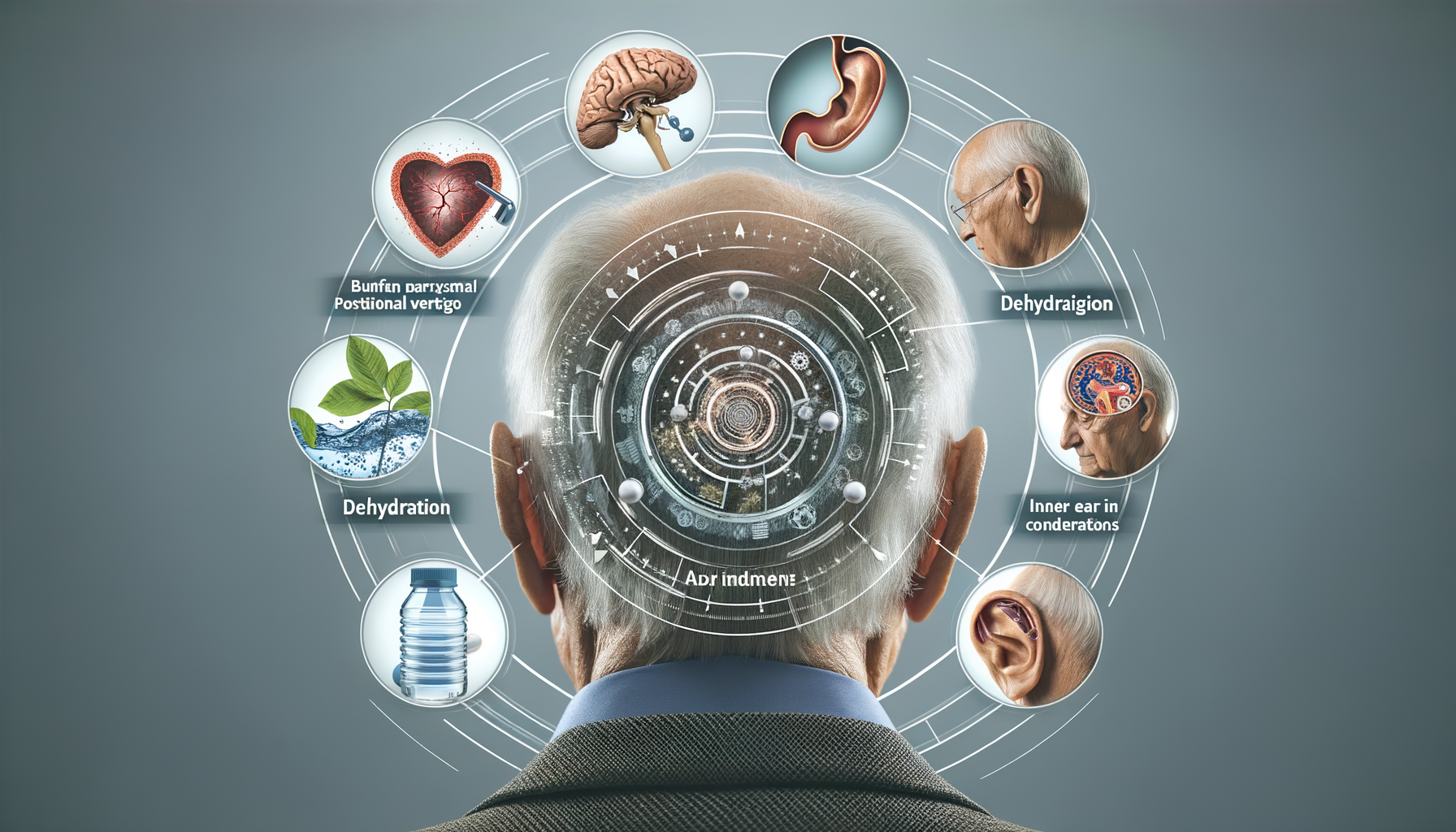What Causes Sudden Dizziness When Turning In Bed Among Seniors?
Could a simple head movement while lying down trigger a disorienting sensation? The experience of the room spinning can be unsettling, especially for older individuals. Understanding the potential factors behind this phenomenon can offer clarity.

Understanding Benign Paroxysmal Positional Vertigo (BPPV)
Benign Paroxysmal Positional Vertigo (BPPV) is a common cause of vertigo, particularly in older adults. It occurs when tiny calcium carbonate crystals, known as otoconia, dislodge from their usual location in the utricle of the inner ear and migrate into the semicircular canals. This movement disrupts the normal fluid movement in the canals, leading to the sensation of spinning or dizziness. BPPV is characterized by brief episodes of vertigo triggered by specific changes in head position, such as turning over in bed or looking up.
Several factors can contribute to the onset of BPPV. Age is a significant risk factor, as the likelihood of developing BPPV increases with age due to the natural degeneration of the otolithic membrane, which holds the otoconia in place. Additionally, head injuries and certain ear surgeries can also precipitate the condition. It’s important to note that while BPPV is not life-threatening, it can significantly impact quality of life by increasing the risk of falls and reducing mobility.
Diagnosis of BPPV typically involves a clinical evaluation and specific tests, such as the Dix-Hallpike maneuver, which involves moving the patient’s head into different positions to trigger vertigo and observe eye movements. Treatment often includes repositioning maneuvers like the Epley maneuver, which aims to guide the dislodged crystals back to their original position. These maneuvers are generally effective, providing relief for many patients.
The Role of Dehydration and Inner Ear Issues
Dehydration is a condition that can exacerbate inner ear issues, leading to episodes of dizziness and vertigo. The inner ear relies on a delicate balance of fluids to function correctly, and any disruption in this balance can affect the vestibular system, which is responsible for maintaining balance and spatial orientation. When the body is dehydrated, the volume of fluid in the body decreases, potentially affecting the fluid in the inner ear and leading to symptoms of vertigo.
Older adults are particularly susceptible to dehydration due to several factors, including decreased thirst sensation, medications that increase fluid loss, and underlying health conditions. It’s crucial to maintain adequate hydration to support inner ear health and prevent dizziness. Symptoms of dehydration can include dry mouth, fatigue, dark urine, and dizziness. Addressing dehydration involves increasing fluid intake, particularly water, and monitoring for signs of improvement.
In addition to dehydration, other inner ear issues such as infections or inflammation can also lead to dizziness. Conditions like labyrinthitis and vestibular neuritis, which involve inflammation of the inner ear structures, can cause prolonged vertigo and balance disturbances. These conditions often require medical evaluation and treatment to manage symptoms and prevent complications.
Medication Side Effects and Other Considerations
Medications are another important factor to consider when addressing sudden dizziness in seniors. Many medications, including those commonly prescribed for hypertension, depression, and anxiety, can have side effects that include dizziness and vertigo. These effects may occur due to changes in blood pressure, fluid balance, or direct effects on the central nervous system.
It’s essential for individuals experiencing dizziness to review their medications with a healthcare provider to determine if any could be contributing to their symptoms. In some cases, adjusting the dosage or switching to an alternative medication can alleviate dizziness. Additionally, certain medications used to treat vertigo itself, such as vestibular suppressants, can also cause drowsiness and further impact balance.
Beyond medications, other considerations include lifestyle factors such as diet, exercise, and stress management. A balanced diet rich in nutrients supports overall health and can help manage conditions that contribute to dizziness. Regular exercise improves cardiovascular health and balance, reducing the risk of falls. Stress management techniques, such as mindfulness and relaxation exercises, can also be beneficial in managing symptoms of vertigo and dizziness.